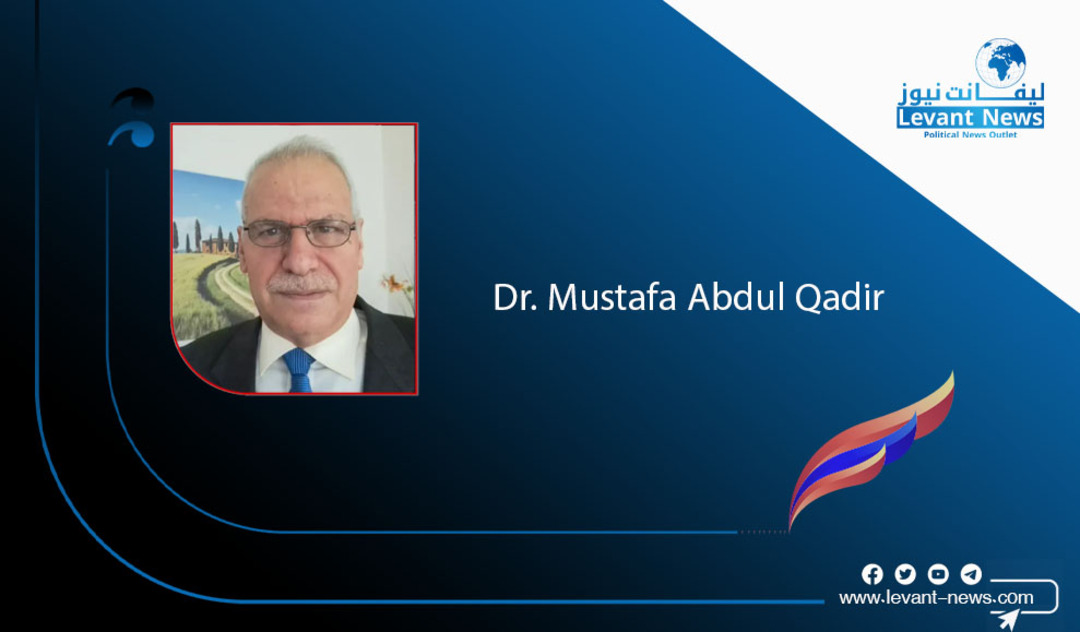-
Behind the Negotiations between the Mullahs of Tehran and the United States: What Happens Behind the Scenes

Syria and the Ongoing Negotiations Between the Mullahs of Iran and the United States... Where Is the Policy of Appeasement Between the Mullahs of Iran and the United States Heading, and How Does It Affect the Situation in Syria?
It seems that the tug-of-war between Washington and Tehran has begun to take a new turn based on recent statements made by Trump during the reception of Benjamin Netanyahu at the White House days ago; the U.S. President confirmed that negotiations regarding the Iranian nuclear file are now taking place directly between the two parties at a high political level, while Tehran had previously claimed and insisted that the negotiations were indirect. However, the question that arises, based on prior knowledge of the misleading media, which has proven over time that what is promoted here and there is not necessarily the truth, is that in international politics, the media is not required to leak truths emanating from political circles but rather to selectively serve the objectives intended for achievement, often without revealing the facts that could hinder the planned progress.
Donald Trump threatened Iran that if it does not achieve a positive outcome from its negotiations with the United States, it will face a great disaster. This serves as a form of preemptive intimidation aimed at increasing pressure on Iran. Israel appears to be increasingly alarmed by the imminent possibility of Iran acquiring nuclear weapons, as time is running out for any prolonged waiting. Thus, we can sense Trump's insistence on coordinating with Israel regarding the Iranian nuclear file and keeping it away from the ongoing negotiations in this regard. He does not want it to take any step in this matter without the knowledge and approval of the United States.
On the other hand, Iranian politicians have been known for their maneuvering and deception in all their rapid steps toward acquiring nuclear capabilities. Conversely, after breaking their wings in Syria, Lebanon, Yemen, Palestine, and possibly Iraq later, they feel that they have lost the most significant cards they relied on in accordance with their regional ambitions. Consequently, they have turned to try to overcome the shock and reconnect with their sleeper cells in Syria, hoping for a change that might return them to their (Shia Crescent), especially after Israel destroyed most of the Syrian military power right after the victory of its revolution. If we scrutinize the rapidly escalating events of bombing and destruction of Syrian sites, we would find that this serves the interests of the mullahs of Tehran, and we realize that the presence of the Assad regime and the mullahs of Iran was supportive and beneficial to Israel.
Strategically, the Supreme Leader and his regime and soldiers are searching for any loophole that could assist them in returning to their (lost paradise), which they have struggled to reach before being expelled from it; however, their pawn has fallen in a sudden and catastrophic manner, taking with it their dearest dreams.
The situation in the new Syria has not yet settled, as there are many enemies, and internal, Arab, and regional interests are waiting for an opportunity to pounce and recover what has been lost through conspiracy weaving and stirring up sectarian tensions, which are already ready for action.
The ongoing negotiations between the United States and Tehran recently leave us uncertain about their outcome. Perhaps an agreement will be reached between the two sides through secret channels involving regional exchanges capable of creating balances in the Arab region that provide a form of compensatory satisfaction for the mullahs of Tehran at the expense of the oppressed Arab peoples, stripping them of their legitimate right to live in freedom and dignity.
There appear to be contradictory positions, at least outwardly, between the United States and the mullahs of Tehran regarding their calculated efforts to acquire nuclear weapons to find a foothold among militarily recognized nations. They aspire to regional expansion that fulfills their ever-renewing old ambitions.
We must wait to see what the direct negotiations between Iran and the United States will produce, and whether there will be consensus and agreement on the proposed discussion points concerning the Iranian nuclear file in a manner that satisfies all parties, especially Israel, which is eager to pounce. In any case, the U.S. may concede some of its previous insistences regarding Iranian military capabilities, particularly the destructive ballistic missile power, which Israel views with concern and apprehension. Here the question arises: Will the mullahs of Tehran relinquish their deep-seated ambitions so easily, or will they maneuver again if they have time left for maneuvering? Is the ongoing Western maneuvering with the ruling mullahs in Iran a genuine path to creating stability and peace in the region? And why not support the struggle of the Iranian people and the Iranian resistance and resistance units to overthrow this regime and establish a democratic and non-nuclear Iran... Isn't this the right choice that the West avoids? It seems that the West aims to maintain the mullahs' rule in Iran to keep the region mired in its crises!!!
Dr. Mustafa Abdul Qadir
You May Also Like
Popular Posts
Caricature
opinion
Report
ads
Newsletter
Subscribe to our mailing list to get the new updates!





















